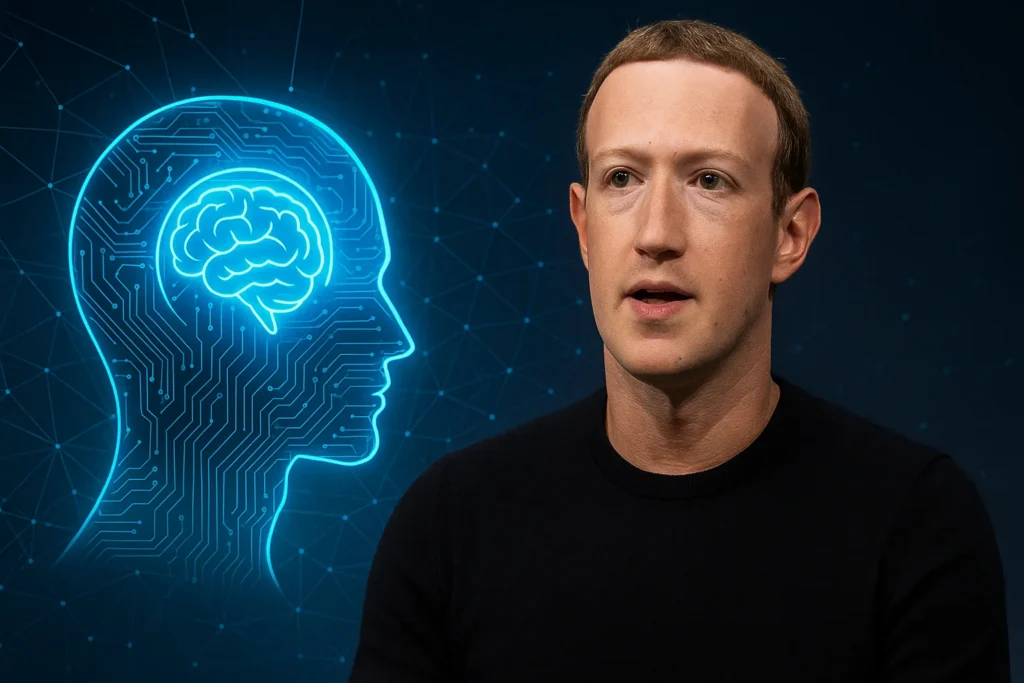Mark Zuckerberg just sent shockwaves through the AI world. While Meta once championed open-source AI, a subtle but major shift in strategy may change everything. Here’s what it means for the future of personal superintelligence—and your digital life.
In updating this week, Meta CEO Mark Zuckerberg signaled a major strategic shift in the company’s AI roadmap, subtly suggesting that the future of its most advanced models may not be open source after all.
For years, Meta’s Llama models have stood as a rare counterpoint to closed AI systems from OpenAI and Google DeepMind. With Llama 2 and Llama 3, Meta positioned itself as the tech giant making powerful AI accessible to all. But that narrative may be changing.
Key Takeaways:
- Open Source No Longer Default: Meta may no longer fully open-source future Llama models, especially as they near “superintelligence” levels.
- Shift in Focus: Meta is redirecting efforts from open distribution to controlled, personal AI integration via devices like AR glasses.
- Massive Investments: Meta has poured over $14.3 billion into AI infrastructure, including acquiring Scale AI and forming Meta Superintelligence Labs.
- Competitive Pressure: Meta’s pivot appears to be partly driven by falling behind OpenAI’s GPT-4, leading to a more aggressive, product-focused AI push.
- Closed Models Coming: Despite public statements supporting openness, Meta is developing a mix of open and closed systems going forward.

Zuckerberg’s latest letter outlines Meta’s grand vision for “personal superintelligence”—a future where every person has an AI partner that intimately understands them, supports their goals, and lives in their devices. But buried in that letter is a significant change in tone around openness:
“We’ll need to be rigorous about mitigating these risks and careful about what we choose to open source,” he wrote.
That’s a notable departure from Meta’s previous tone. In fact, the company once promised Llama would eventually outperform GPT-4 while remaining open. Now, the door is open for something else entirely—a move to closed AI models, especially those deemed too powerful or risky for public release.
Zuckerberg’s stated mission isn’t just to create a smarter chatbot or a more efficient assistant. Instead, it’s about building “personal superintelligence”—an AI that mirrors your context, understands your world, and helps you become the person you aspire to be.
“Glasses that understand our context… will become our primary computing devices,” Zuckerberg said, emphasizing a future of seamless, AI-powered interaction.
What’s striking here is how Meta’s vision contrasts with competitors. While others chase AGI designed to automate all valuable labor, Zuckerberg frames Meta’s goal as democratized empowerment—AI that helps individuals create, connect, and grow.
But with this vision comes caution.
By calling attention to “novel safety concerns,” Zuckerberg introduces a new paradigm: openness is not always responsible. In other words, we may not get our hands on the most powerful versions of Llama if Meta deems them too risky.
This shift is also a clear signal to the industry: Meta is no longer content playing catch-up with open-source bragging rights. It wants to win the AI race—even if that means taking a page from its rivals’ closed playbook.
While a Meta spokesperson reiterated the company’s commitment to open AI, they acknowledged the new strategy includes training “a mix of open and closed models” depending on context and capability.
Why This Matters for You
Whether you’re a developer, a founder, or just a curious tech user, this shift matters.
The tools that shape our future—how we work, create, communicate—are increasingly powered by AI. If the companies building those tools move away from openness, it could limit innovation, transparency, and access.
On the flip side, personalized AI assistants that deeply understand your goals and environment could become life-changing companions.
We are at a fork in the road. And Meta just picked its lane.
As the rest of this decade unfolds, expect the battle over AI to shift from model performance to philosophical values: Do we want AI that empowers the few—or the many?
Source: Meta
